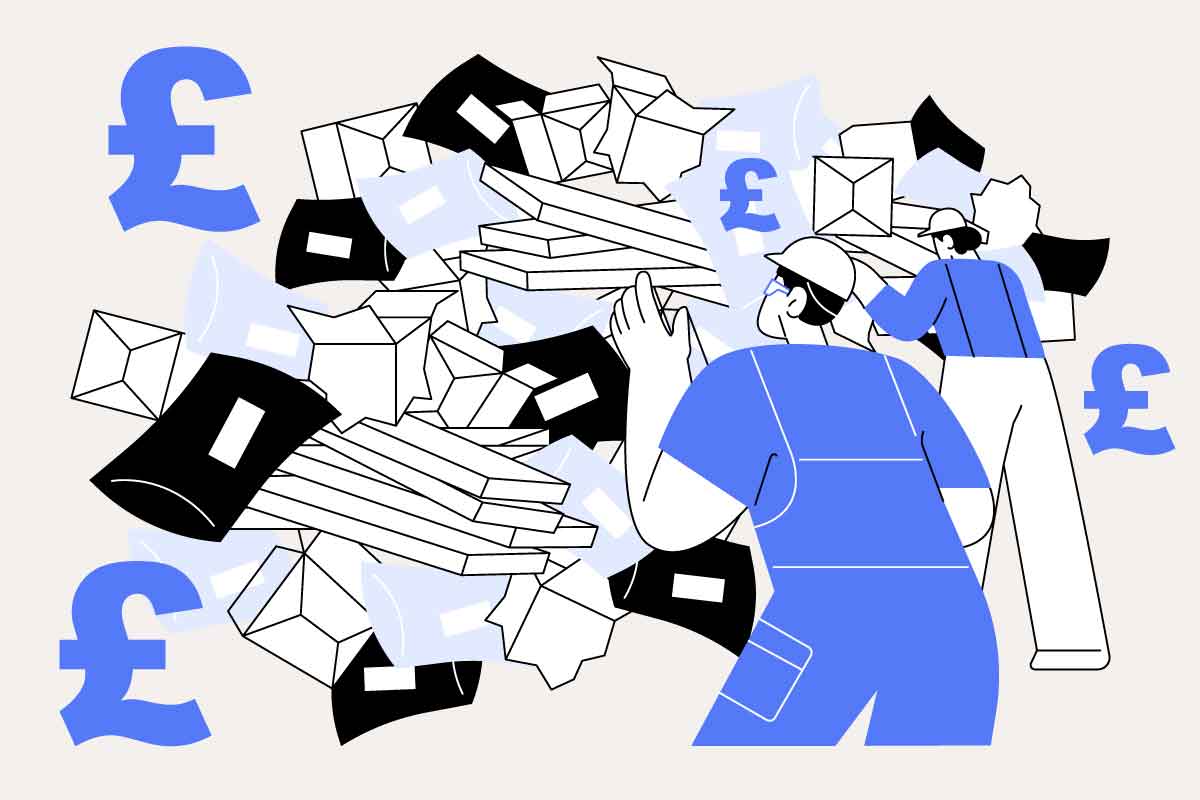In an era where data protection and privacy are paramount, the proper disposal of confidential waste is crucial for all businesses. Mishandling sensitive documents can lead to severe financial penalties and irreparable damage to a company’s reputation. Here, we explore the most effective methods for disposing of confidential waste in the UK, ensuring compliance with regulations such as the General Data Protection Regulation (GDPR) and the UK Data Protection Act 2018.
Understanding confidential waste
Confidential waste includes any document or data-bearing device that contains information which could be harmful to a company, its clients, or its employees if disclosed. This can range from personal information and financial records to business contracts and internal communications.
Options for disposing of confidential waste
1. Shredding
Shredding is one of the most secure and common methods for disposing of paper documents. Businesses can either purchase professional shredders and destroy documents in-house or hire a certified shredding service. These services typically offer on-site or off-site shredding options and provide certificates of destruction for records.
2. Incineration
For absolute destruction, incineration is a viable option. This method is particularly suitable for destroying multimedia items such as CDs, hard drives, and other data storage devices. Incineration ensures that confidential information is completely irrecoverable.
3. Pulping
Pulping involves chemically breaking down paper into its base fibres, which are then recycled into new paper products. This process not only ensures the destruction of confidential information but also contributes to environmental sustainability.
4. Hiring a professional waste disposal service
Professional waste disposal services manage the destruction of confidential documents while ensuring compliance with UK waste management regulations. These companies handle everything from collection to destruction and provide documentation to prove that the waste has been dealt with legally and securely.
5. Digital data destruction
For electronic data, physical destruction of the storage device (like hard drives and USB sticks) is often necessary. Techniques include degaussing (demagnetising the data) and physical destruction using specialised machinery. Software solutions for data wiping are also available but should be used with caution as they may not always guarantee complete data erasure.
Legal considerations and best practices
It’s crucial for businesses to understand their legal obligations regarding confidential waste disposal. Under the GDPR and UK Data Protection Act, organisations are responsible for protecting personal data against unauthorised or unlawful processing and accidental loss or destruction. Non-compliance can result in hefty fines.
To remain compliant, businesses should:
- Maintain a clear data protection policy that includes disposal of confidential waste.
- Keep an inventory of all confidential materials and track their disposal.
- Ensure all staff are trained on the importance of protecting confidential information and the correct procedures for its disposal.
- Regularly audit waste management processes to ensure compliance and address any gaps in security.
Conclusion
Proper disposal of confidential waste is not just a legal requirement; it’s a critical component of a business’s operations management. By adopting a methodical approach to disposing of sensitive information, UK businesses can minimise their risk exposure while reinforcing their commitment to data security and client trust.
FAQ about confidential waste disposal
Confidential waste includes any material that contains sensitive information which could cause harm if disclosed. This typically covers documents containing personal details, financial records, employee information, business contracts, and client data.
Proper disposal prevents the risk of data breaches and identity theft, helping businesses comply with data protection laws such as the GDPR and the UK Data Protection Act 2018. It also protects the reputation of a business by demonstrating a commitment to customer and employee privacy.
The frequency depends on the volume of confidential material a business generates and its storage capabilities. Some businesses schedule regular weekly or monthly pickups, while others might do so quarterly or as needed. It’s important to dispose of confidential waste regularly to avoid accumulation and potential security risks.
Yes, businesses can choose to shred confidential documents in-house using a professional shredder. However, this requires investing in a high-quality shredder capable of handling the volume and type of material needing destruction. It also necessitates implementing secure processes to manage the waste before and after shredding.
Yes, it’s advisable to use a waste disposal company that is certified under standards such as ISO 27001, which focuses on information security management, or the Secure Destruction of Confidential Material standard (EN 15713) in the UK. These certifications ensure that the company adheres to stringent security practices.
After collection, the waste is either shredded, incinerated, or pulped under secure conditions. The destroyed materials are then typically recycled if possible. Most professional services provide a certificate of destruction detailing the time and method of destruction as proof of compliance.
Yes, digital data on hard drives, USBs, CDs, and other storage devices is considered confidential waste if it contains sensitive information. Proper disposal involves physical destruction or demagnetising (degaussing) to ensure the data cannot be recovered.
Choose a service that guarantees compliance with legal requirements, offers secure handling and destruction processes, and can provide proof of destruction. Look for services with good reviews and appropriate certifications to handle confidential waste.
Businesses should establish and maintain a data protection policy that includes secure disposal practices, educate employees on the importance of handling confidential waste correctly, and conduct regular audits to ensure compliance with the policy and legal standards.

